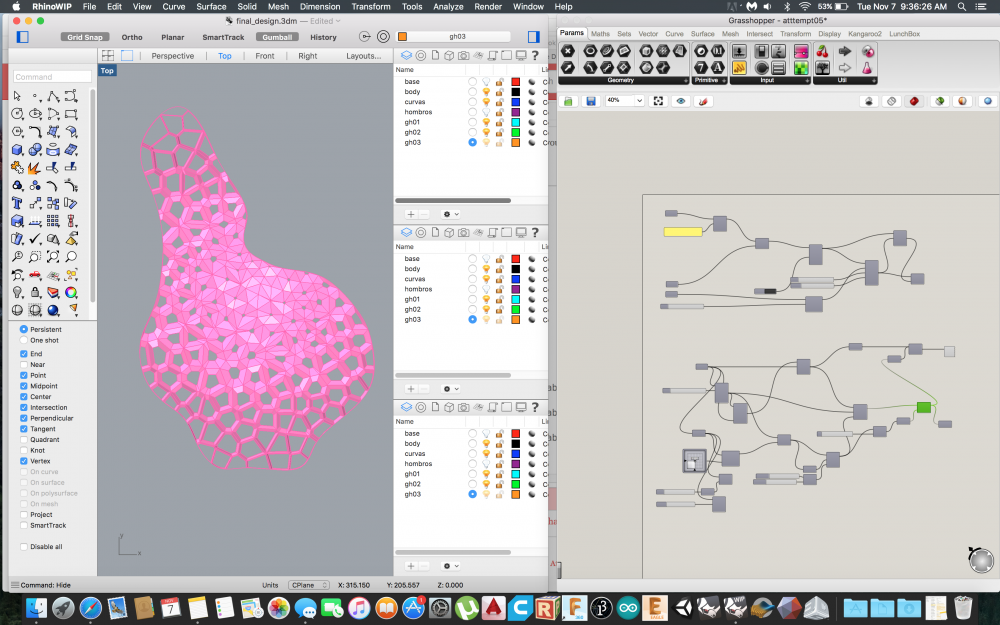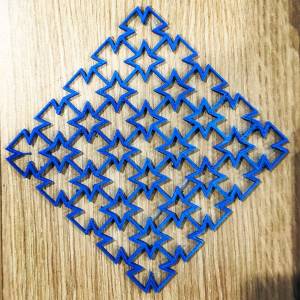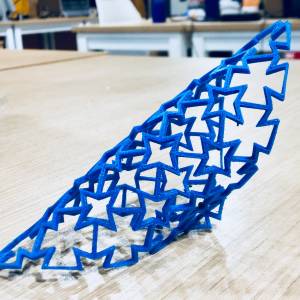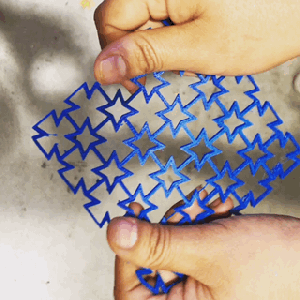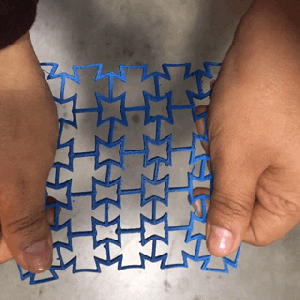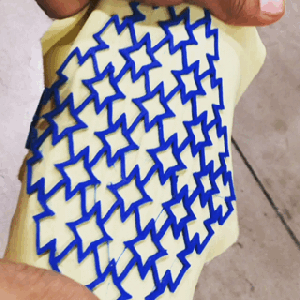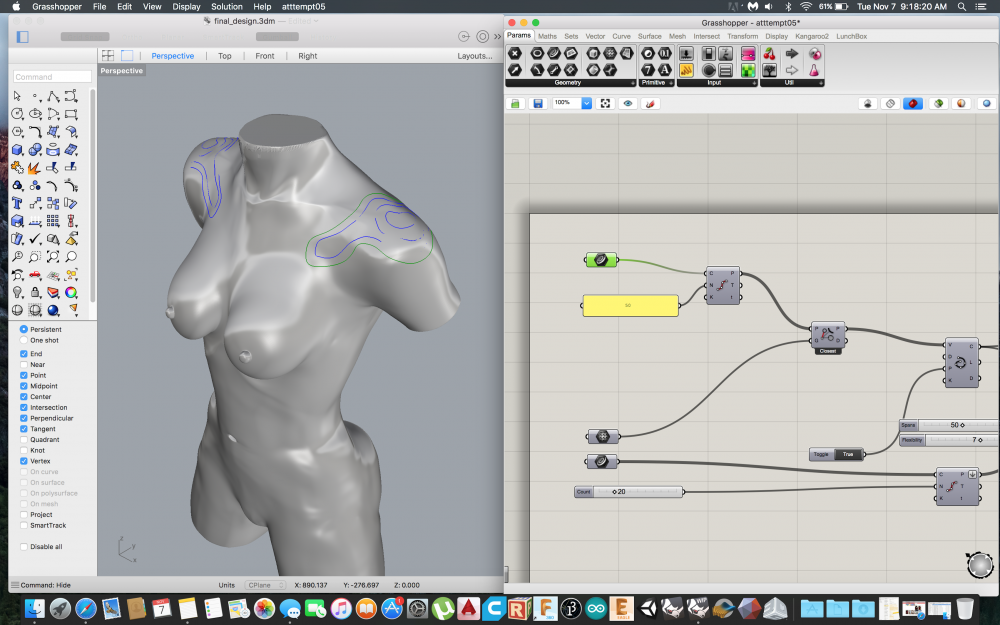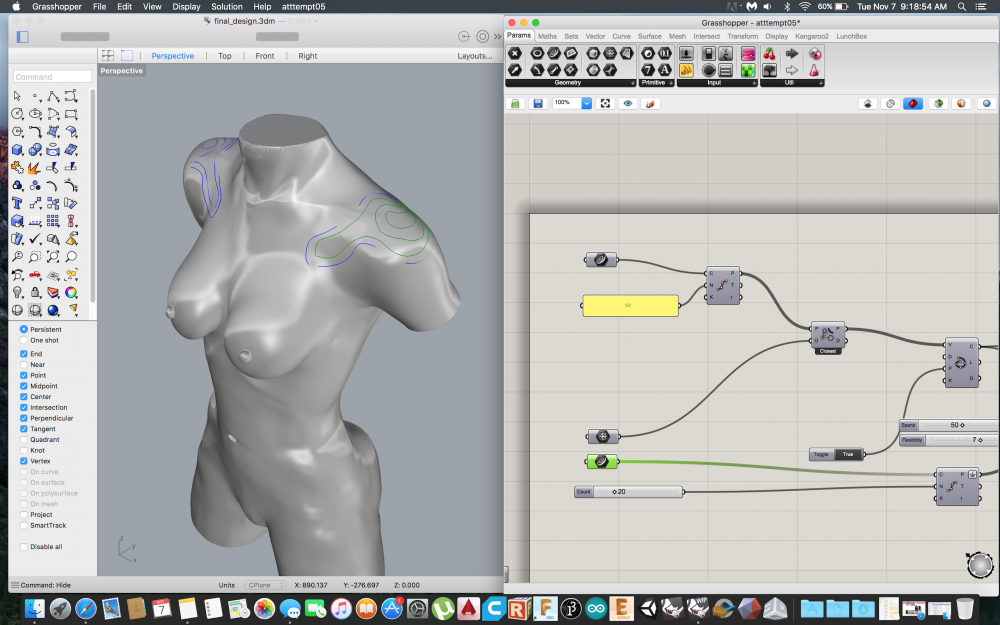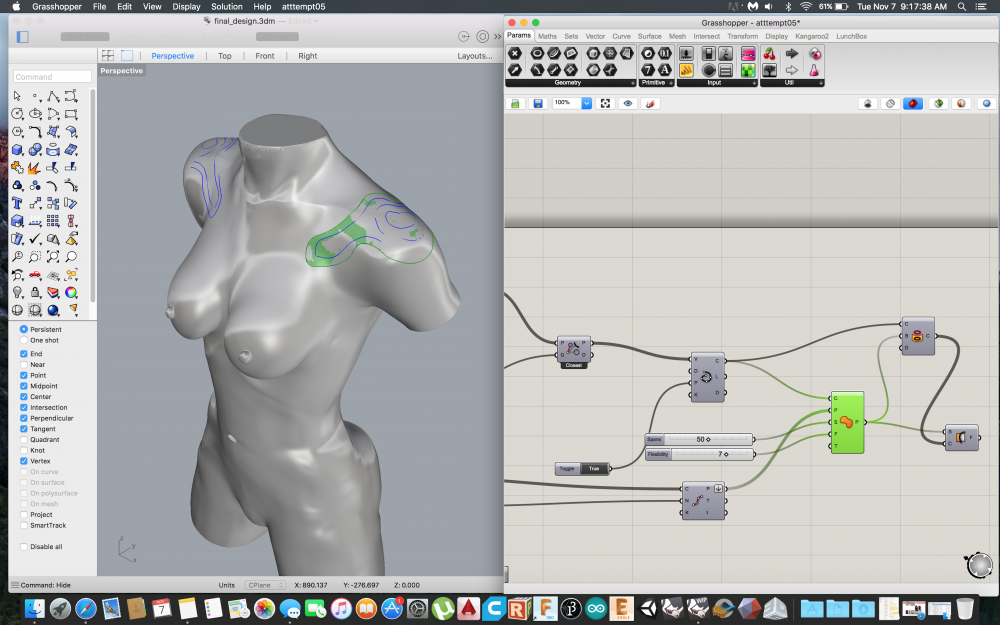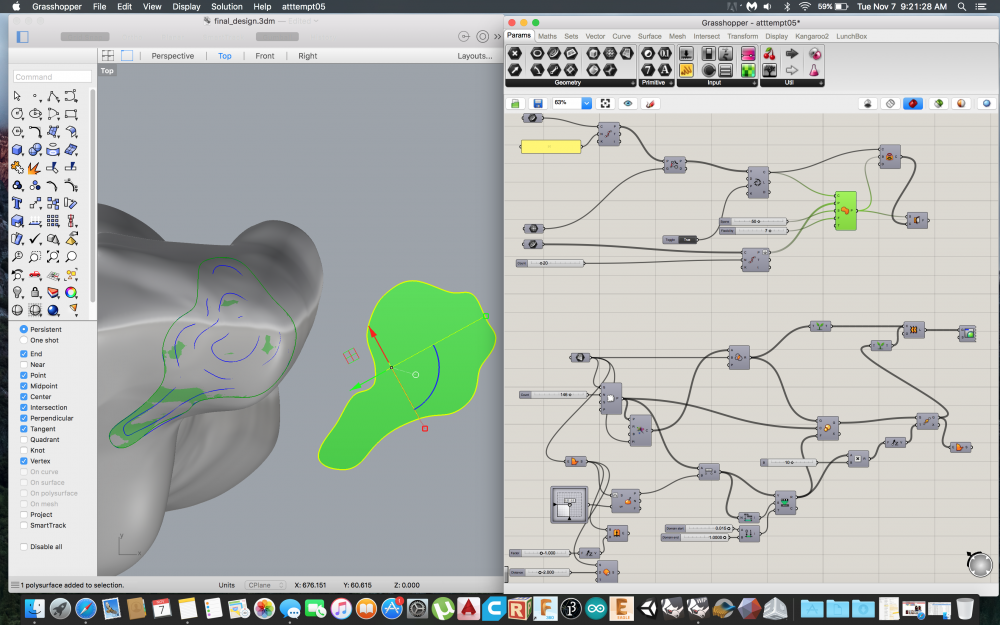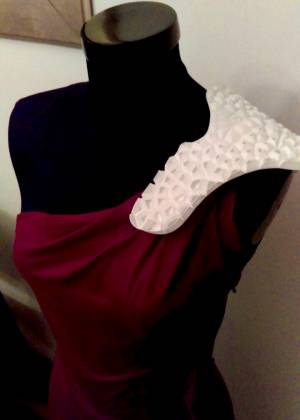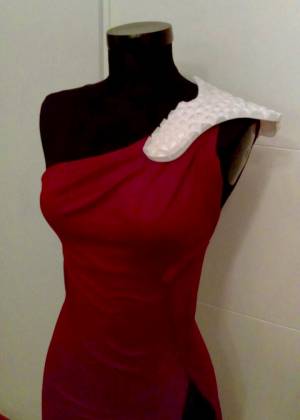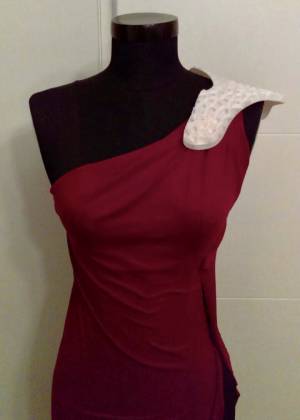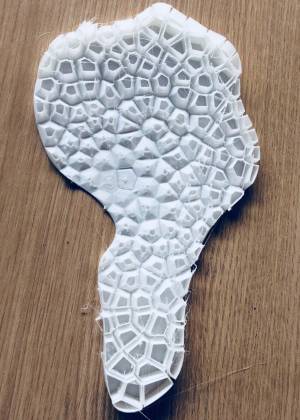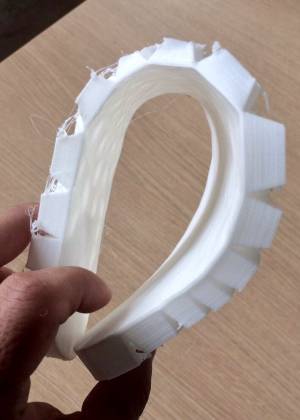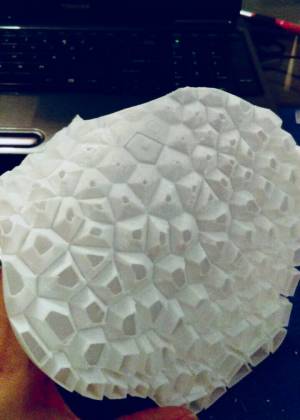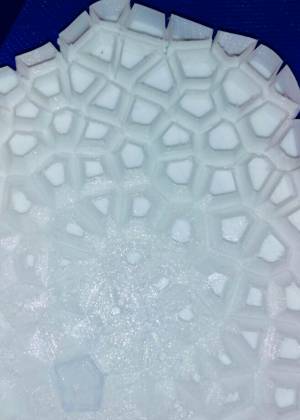Table of Contents
WEEK 06 | 31.10.17
Computational Couture
Aldo Sollazo made the introduction to this topic which is completely interesting for me because it is about programming to create new shapes and patterns.
RHINOCEROS & GRASSHOPPER
I am familiar with rhinoceros program but not with grasshopper so this weekly assignment was quite challenging for me because I had to learn as fast as I could how to design with grasshopper and how to use some common definitions that I will show you lines below.
Firstly, it was very helpful that Aldo guided us through the grasshopper environment and taught us how to create some patterns based on some designs he had worked on. For this, he gave us 3 video tutorials to let us be familiar with grasshopper and the huge possibilities that it has to create patterns and complex shapes.
Here you can find Aldo's grasshopper tutorials for beginners
SOME RESEARCH
I started watching more tutorials on youtube about creating patterns with grasshopper and I found a great channel. I even chat with the guy who made those videos and asked him any question I had during my process of learning. Aaron is so kind and his tutorials helped me to complete my final design.
Here is Aaron channel called Om. (grasshopper tutorials)
More references:
Here you can find some free .gh files with some definitions
Here you will find a dynamic catalog of over 100 annotated Grasshopper definitions and representations of its potential for the beginning to advanced Grasshopper user.
Here I compiled most of the definitions and GHA that I found in my research and gathered them in my drive.
Attempt 01
Definition: SURFACE POPULATION WITH BOX MORPH
Fabrics: Organza
Machine: Felix 3D Printer
Filament: PLA
Parameters: 210°
Files: download
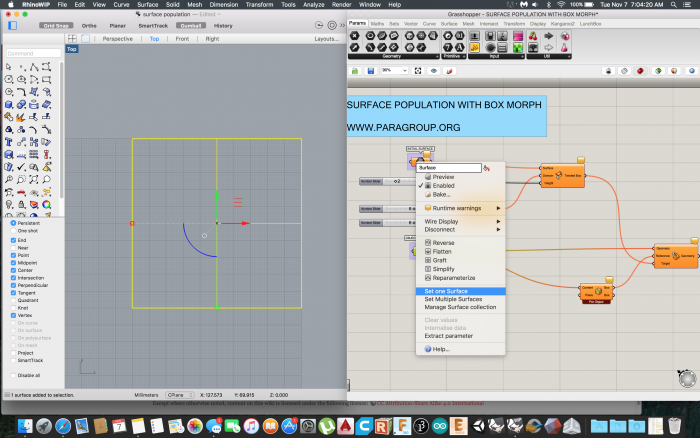
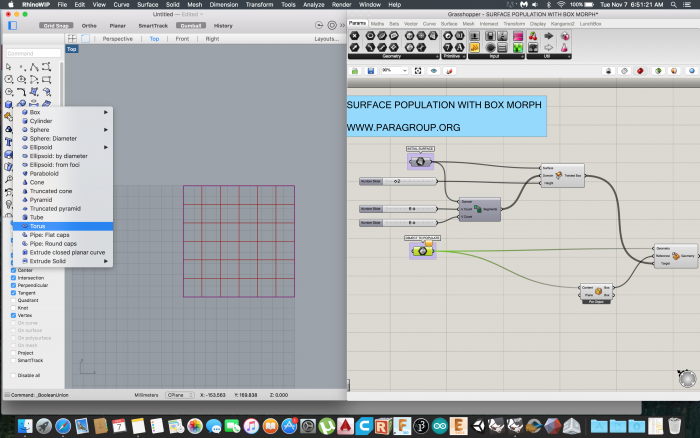
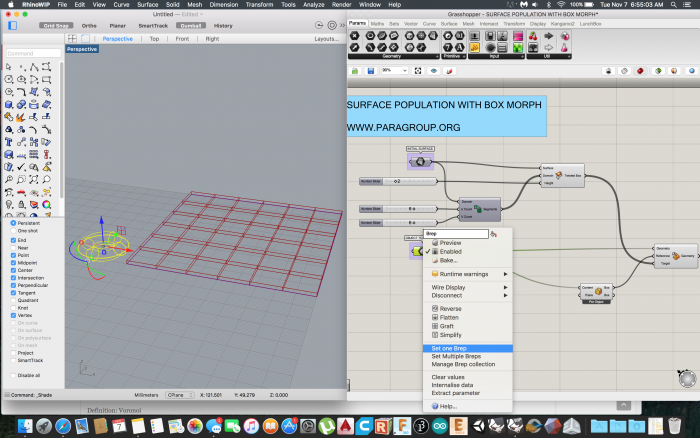
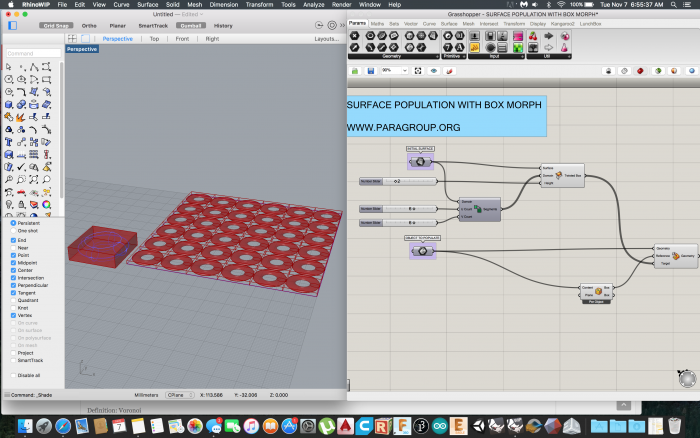
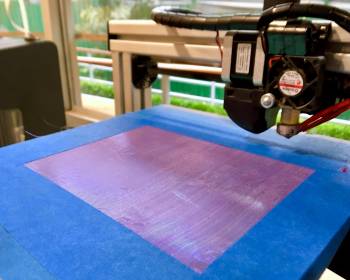
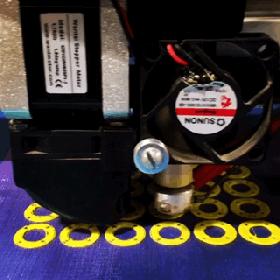
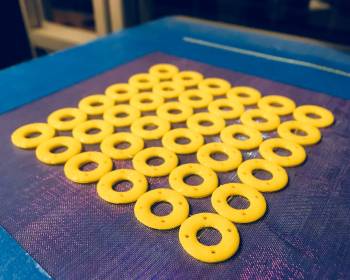
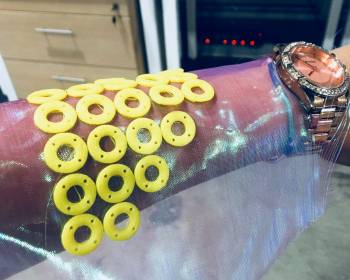
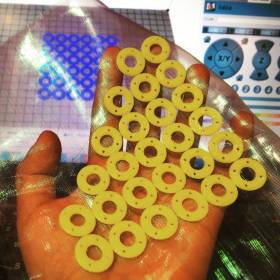
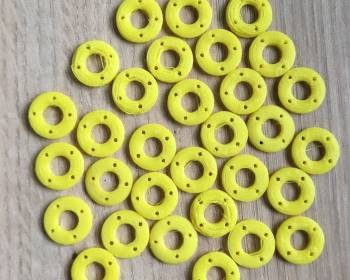
Note: At the end, the 3D printed pieces don't get completely attached to the fabric, it is very easy to remove them from the organza.
Attempt 02
Definition: SURFACE POPULATION WITH BOX MORPH
Fabrics: Catania (this is the only material I changed from the first one)
Machine: Felix 3D Printer
Filament: PLA
Parameters: 210°
Files: download
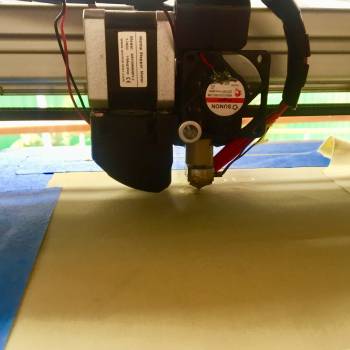
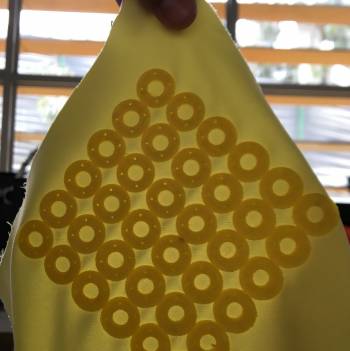
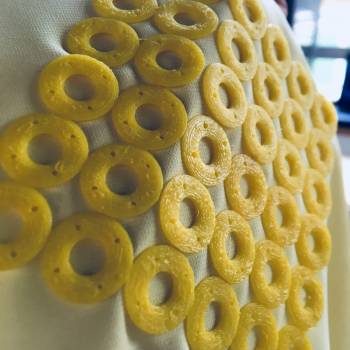
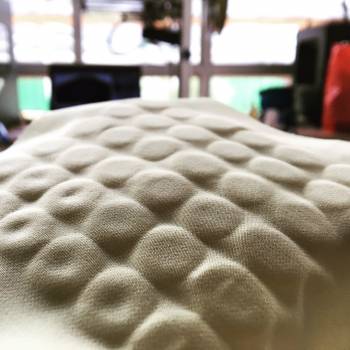
Note: The pieces get completely glued on the fabric surface and it is quite difficult to take them off.
Results: The shape obtained from the back of the fabric looks very nice. I will try more 3d printing patterns as part of my exploration.
Attempt 03
Definition: SURFACE POPULATION WITH BOX MORPH
Fabrics: None
Machine: Felix 3D Printer
Filament: Ninjaflex
Parameters: 215°
Files: download
Note: The pattern is very stretchy.
Attempt 04
Definition: SURFACE POPULATION WITH BOX MORPH
Fabrics: Catania
Machine: Felix 3D Printer
Filament: Ninjaflex
Parameters: 210°
Files: download
Note: The limit of the filament elasticity is the fabric stretch.
Final Design
My Inspiration
This piece was inspired by the shape created by the reflection of the light in the bottom of the sea.
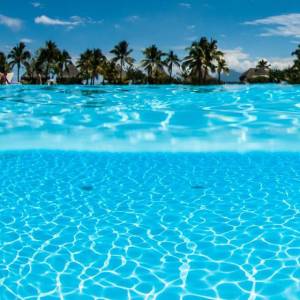
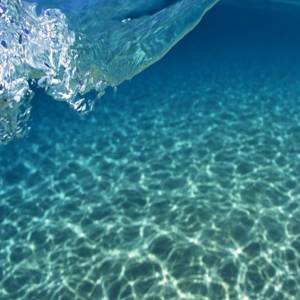
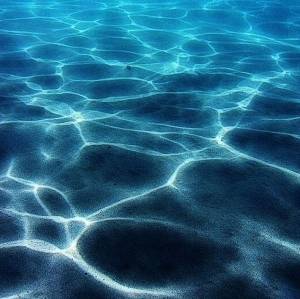
Programming:
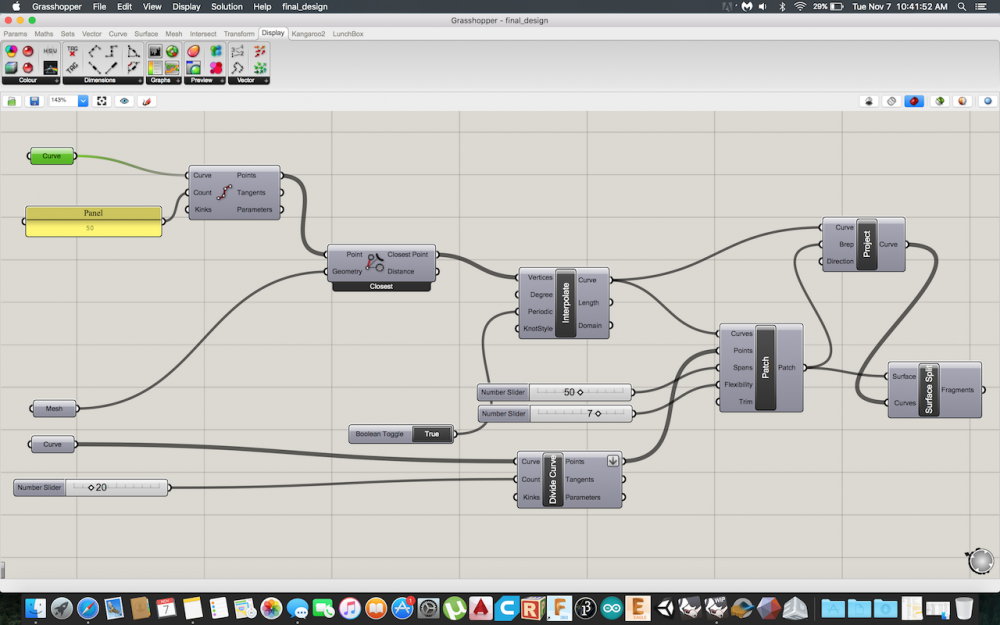
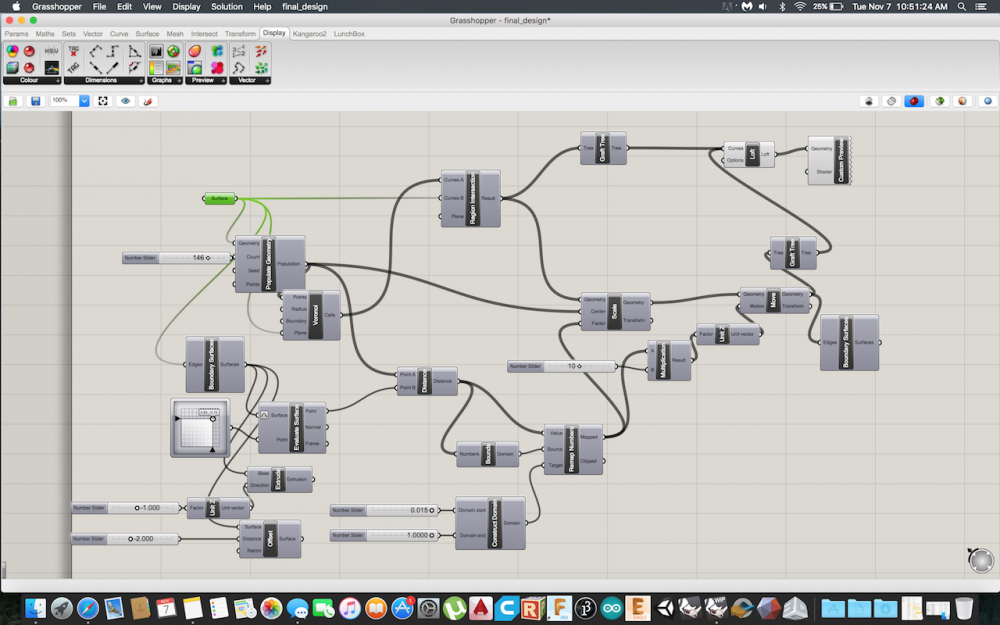
screen_shot_2017-11-07_at_9.15.21_am.png
